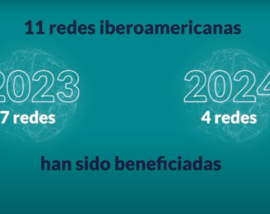Estas cuatro cosas han definido quién eres hoy
Está comprobado que la fórmula para el éxito social y económico está, en gran parte, en cómo pasamos los primeros días de nuestras vidas. La diferencia puede ser abismal. El cerebro de un niño que ha logrado el pleno potencial de desarrollo puede ¨iluminar¨ como un foco de 200 watts mientras que uno que no lo logró solo alcanza los 25 watts, es decir, casi un 90% menos de oportunidades. Son diversos los factores que minan está capacidad de desarrollo. De acuerdo al Banco Mundial, una cuarta parte de los niños menores de cinco años en todo el mundo -es decir, 156 millones de niños según estimaciones de 2016- padecen desnutrición crónica. Un estudio realizado en Guatemala, demostró que los niños bien alimentados, sin retraso en el crecimiento, tuvieron más probabilidades de escapar de la pobreza cuando adultos y obtuvieron ingresos entre 5% y 50% superiores a los de sus pares que habían sufrido retraso en su desarrollo. Sin embargo, la desnutrición no es el único factor en la disminución de la capacidad de crecimiento del futuro éxito de un niño. La falta de cuidados, de cariño y la exposición a situaciones de estrés, que se ven sobre todo en niveles socioeconómicos bajos, pueden causar en los menores daños irreversibles para el resto de su vida. ¿Qué dicen los expertos? En una conferencia sobre los efectos de la adversidad en el cerebro de los niños, los especialistas destacaron estas cuatro razones clave de por qué hay que invertir en la primera infancia. 1. El desarrollo del cerebro empieza en el vientre El cerebro de un ser humano se empieza a desarrollar en la cuarta semana de embarazo, en base a la nutrición de la mamá y las situaciones que ella experimenta. Posteriormente, la individualidad de este nuevo ser se construirá en base a su herencia biológica y a sus experiencias personales. La capacidad de moldear nuestro cerebro responde a un término que los expertos denominan plasticidad. La plasticidad es mayor cuando se tiene menos de 5 años. Nuestros genes son una parte muy importante en la etapa de crecimiento, pero las experiencias, buenas o malas, hacen que los cerebros de cada individuo se desarrollen de manera diferente. Incluso en gemelos idénticos, los cerebros se desarrollan distinto acorde a sus experiencias de vida. Los cimientos de la arquitectura cerebral se establecen gracias a esas experiencias tempranas, las cuales se basan, principalmente, en el cuidado de los padres o de la persona a cargo del bebé. Si bien todas las experiencias y estímulos ayudan en el desarrollo, es muy diferente que un bebé escuche ruido en el ambiente a que sus padres le hablen constantemente, de forma apropiada a su edad. Lamentablemente, esta oportunidad es limitada. Durante los primeros 1,000 días se desarrolla hasta el 80% de nuestro cerebro y el de un bebé espera diversos estímulos para crecer. Cuando no los recibe, las conexiones que se deberían formar se alteran, y las neuronas no se comunican entre ellas con lo cual se inician los problemas de desarrollo con consecuencias irreversibles. Esto podría resultar en adultos con menor capacidad para regularse en situaciones de estrés y con mayor riesgo a tener problemas sociales y de comportamiento, con muestras de impaciencia, de poca conciencia social, falta de atención, hiperactividad, déficit en el coeficiente intelectual e incluso autismo. Diversas investigaciones han demostrado que, en casos extremos, la falta de nutrición e estimulación, mezclados con los genes de los padres, podrían cambiar incluso el metabolismo de una persona y su inmunidad a las enfermedades, entre otros cambios biológicos. 2. La estimulación temprana y el constante aprendizaje son claves para el crecimiento Un estudio sobre la infancia en Jamaica demostró que lactantes y niños de corta edad que se beneficiaron de actividades de estimulación temprana obtuvieron sueldos hasta un 25% más altos en la edad adulta, equivalentes a los de los adultos que crecieron en hogares de mayores ingresos. La interacción constante de los niños con los padres o personas a cargo, de forma motivadora, positiva y adecuada, crea oportunidades de aprendizaje muy importantes para la vida adulta. Los programas preescolares de alta calidad dirigidos a grupos en situación vulnerable pueden llegar a tener una tasa de rentabilidad de entre el 7% y 16% anual. Pero si bien estos programas agregan conocimientos cuando el niño ya asiste a la escuela, las actividades con los bebes son esenciales en la formación de futuros adultos exitosos que controlan sanamente sus emociones.


